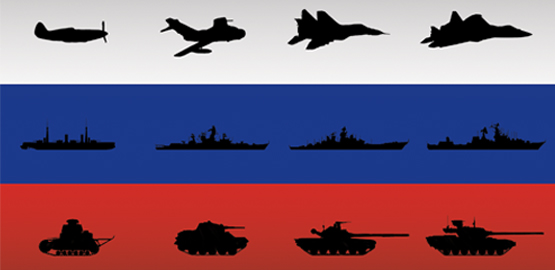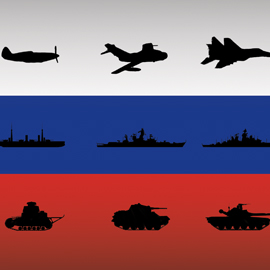Publications
"Nobody does defense policy better than CSBA. Their work on strategic and budgetary topics manages to combine first-rate quality and in-depth research with timeliness and accessibility—which is why so many professionals consider their products indispensable." – Gideon Rose, Editor of Foreign Affairs, 2010-2021
Deterrence and Defense in the Baltic Region
Deterrence and Defense in the Baltic Region examines security requirements for the Baltic States and NATO in the context of Russia's 2022 invasion of Ukraine. The war has provided an opportunity to understand the implications for NATO's eastern flank stemming from Russia's demonstrated willingness to use large-scale military force against another European nation, reassess pre-war assumptions concerning putative Russian military effectiveness, and to draw preliminary observations about Russian and Ukrainian combat performance.
CSBA 2021 Annual Report
CSBA is an independent, non-partisan, non-profit public policy research institute established to promote innovative thinking and debate about national security strategy, defense planning, and military investment options for the 21st century. CSBA’s mission is to develop innovative, resource-informed defense concepts, promote public debate, and spur action to advance U.S. and allied interests. Our vision is to set the terms of debate for the future of national defense and drive change in concept development, force structure, and resources to prepare the United States and its allies to compete and win in an era characterized by great power competition and conflict.
Arms Control: Can Its Future Be Found in Its Past?
In the wake of the Trump Administration’s withdrawal from the Intermediate Nuclear Forces Treaty (INF) of 1988 and the Open Skies Treaty of 1992 there was a great deal of fear that the New START Treaty which one scholar has called “the key bilateral arms control agreement” would expire. Now that the keystone of the arms control enterprise remains in place it is worth examining why so many arms control experts and advocates have been warning about “the end,” “the death” or the “deep crisis” of arms control. As one leading Russian scholar of arms control has argued, “legacy Cold War-era arms control is collapsing and an uncontrolled nuclear arms race is threatening to return.”
Aligning South Korea’s Defense Strategy and Capabilities
Changing security dynamics on the Korean Peninsula are prompting the Republic of Korea (ROK) to reexamine its defense strategy and adjust its military capabilities and investment priorities. North Korea’s growing missile arsenal and asymmetric defense strategy, along with China’s rapid military modernization, present unique challenges to South Korean and American efforts to maintain stability on the Korean Peninsula and in the broader region.
Mind the Power Gap: The American Energy Arsenal and Chinese Insecurity
The shale revolution has upended nearly a half-century of American energy insecurity. The United States is now the most energy-secure it has been since the 1970s and has returned to its position as the world’s leading energy producer.
Implementing Deterrence by Detection: Innovative Capabilities, Processes, and Organizations for Situational Awareness in the Indo-Pacific Region
One of the essential hallmarks of deterrence is the ability to effectively detect – and therefore prepare for – a potential adversary’s hostile action in a timely fashion. Just as the threat of effective retaliation must be credible, deterrence also depends on a robust ability to identify and assess aggressive acts, including acts of coercion that fall below the threshold of kinetic conflict. Recent Chinese actions toward Taiwan, for example, have heightened the conviction among U.S. and allied defense planners that effective, interoperable intelligence, surveillance, and reconnaissance (ISR) systems are essential for the security of the entire Indo-Pacific theater.



























